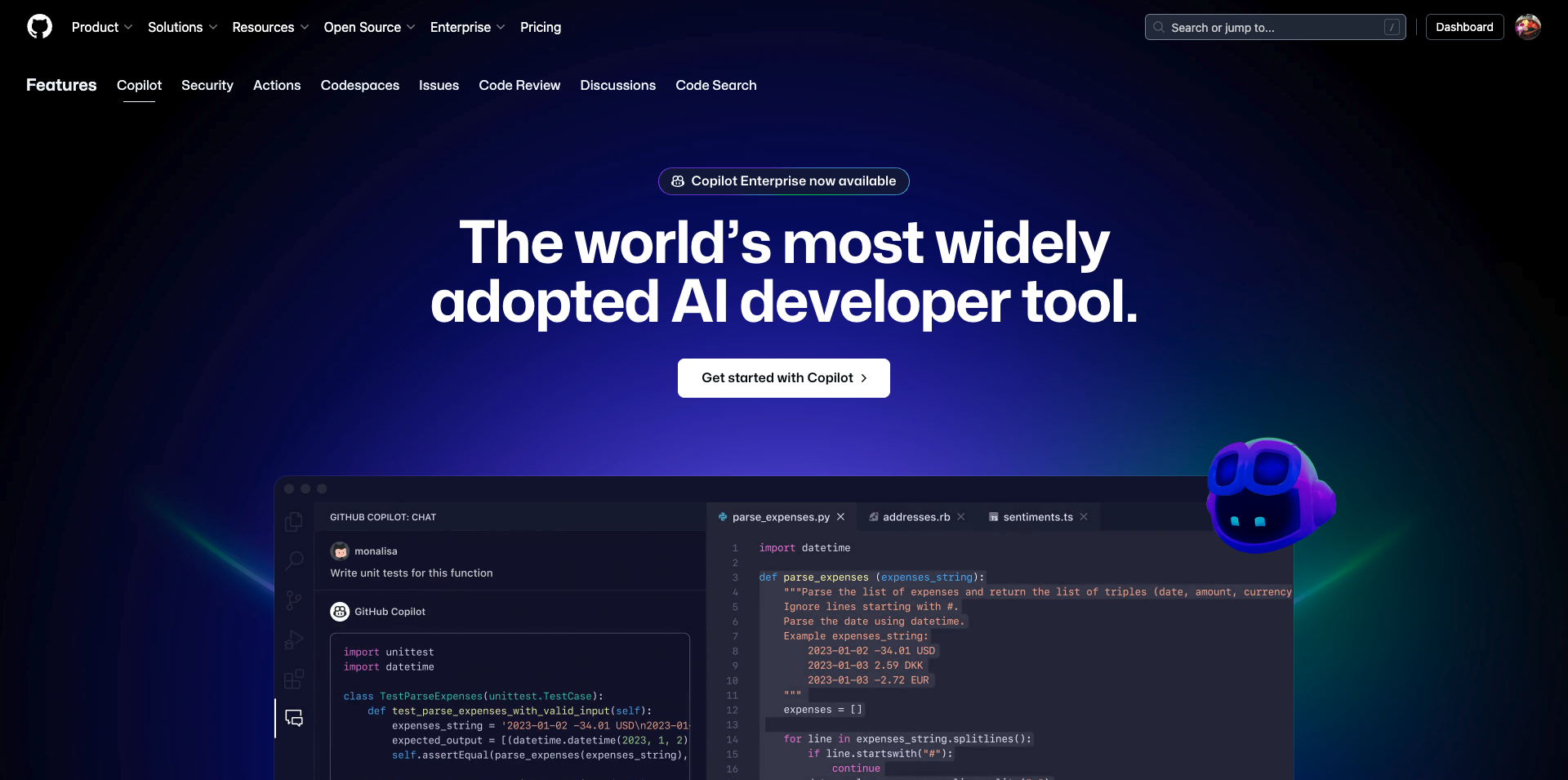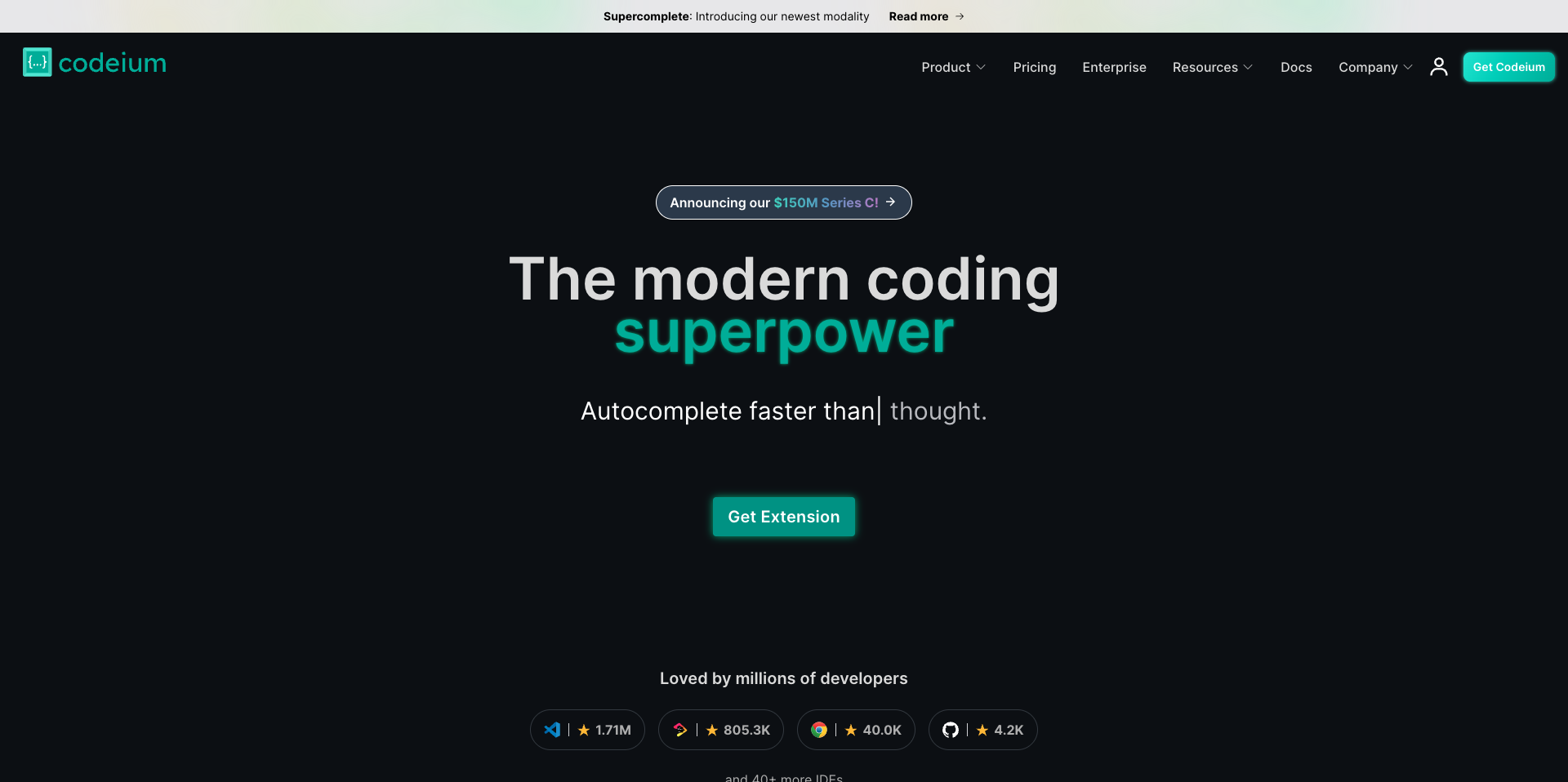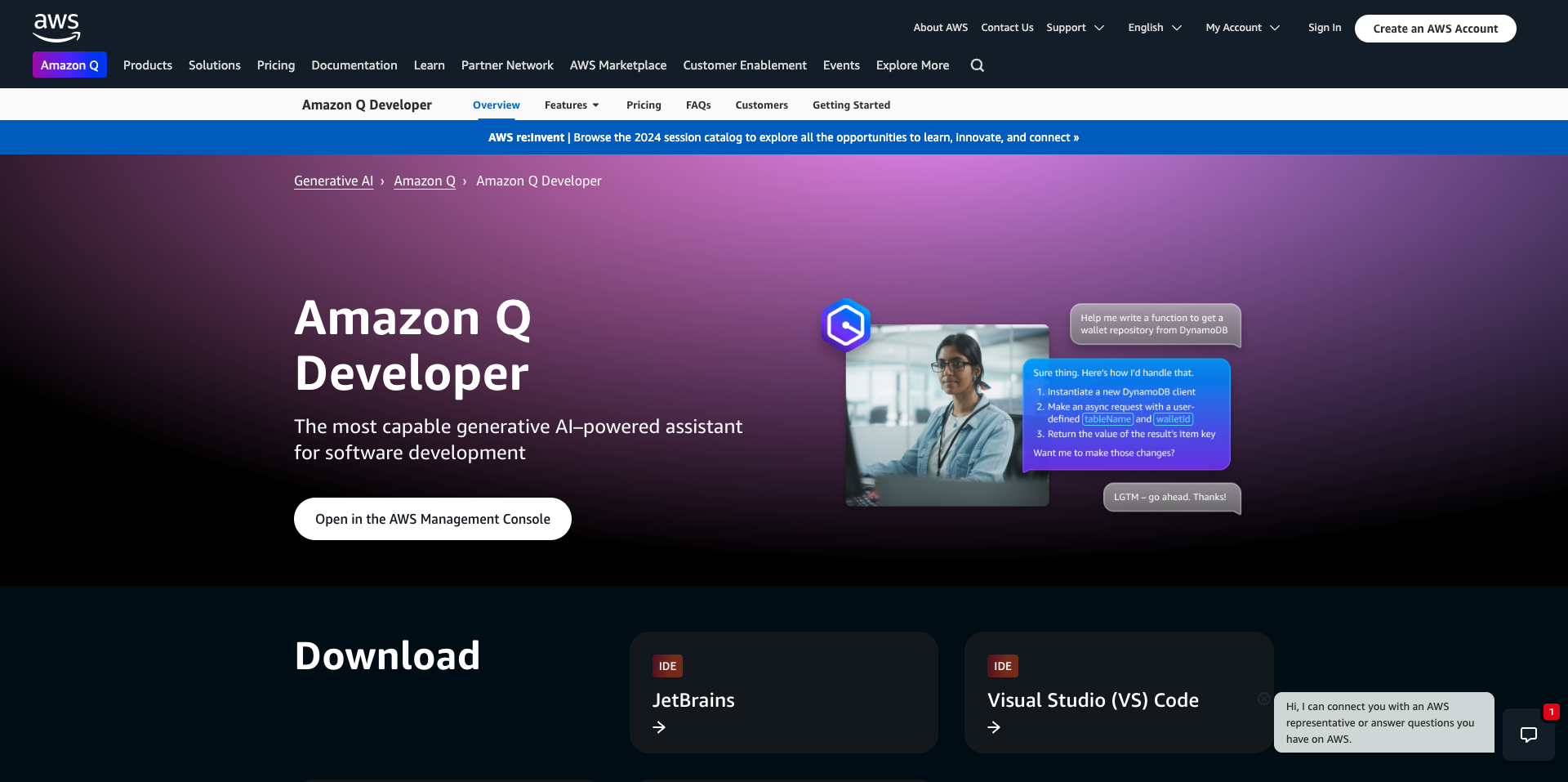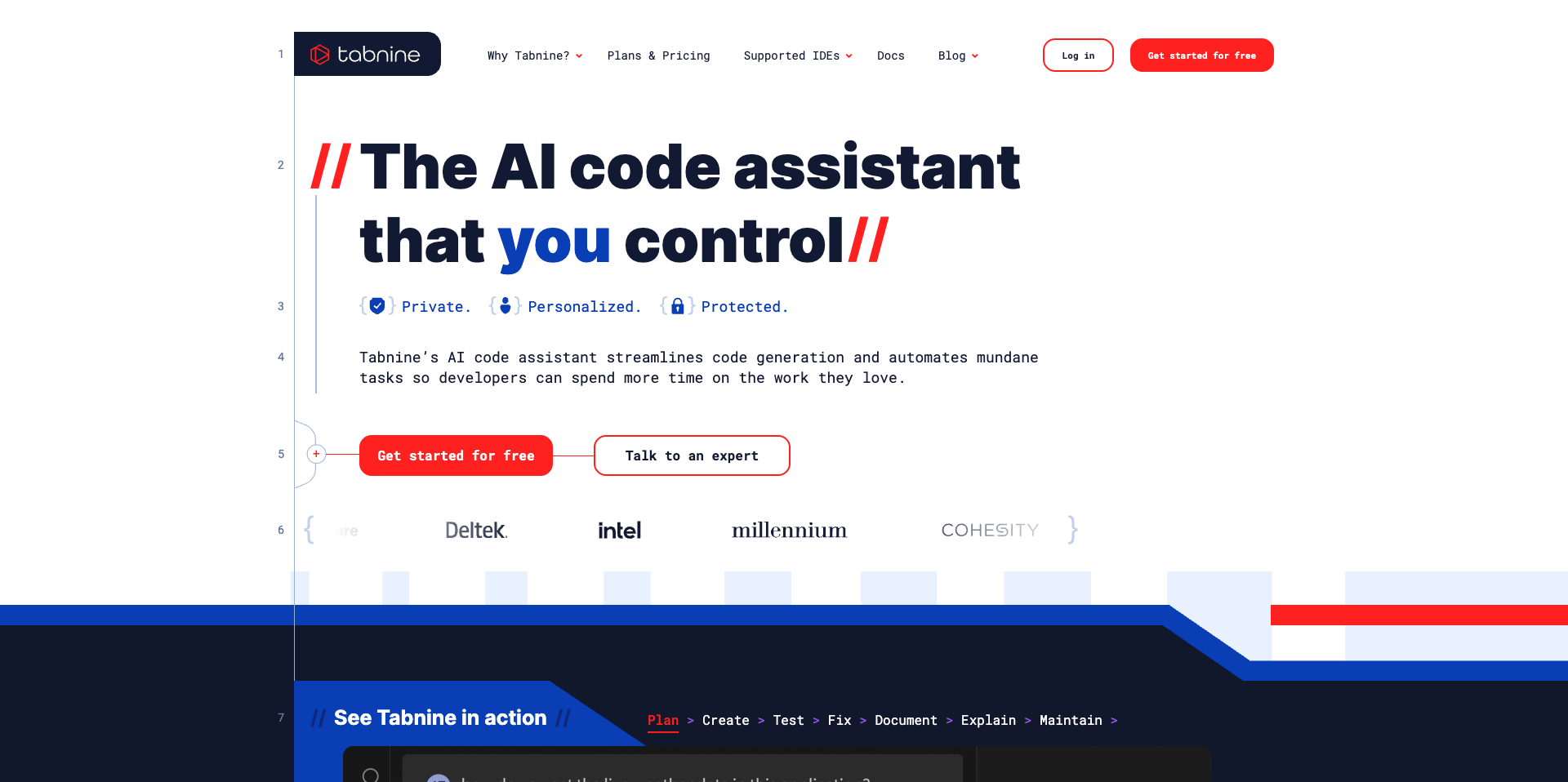The rise of generative AI has profoundly impacted various industries, and software development is no exception. In recent years, AI-powered coding assistants have become invaluable tools for developers, helping them write, debug, and optimize code more efficiently. These assistants, powered by large language models (LLMs), reduce the manual burden on developers, allowing them to focus on more complex tasks that demand creativity and critical thinking. Understanding how these tools enhance productivity and streamline workflows is essential for staying competitive in today's fast-paced product development and busiuness.
In this blog, we will explore how AI has transformed coding, highlighting its advantages, challenges, and specific tools that have made significant strides in the industry. Additionally, we will introduce six AI code assistants.
The Transformative Power of Generative AI in Modern Software Development
AI-powered code assistants have dramatically changed how developers approach software development. Traditionally, coding required extensive manual effort, from writing long stretches of code to debugging and testing. Today, tools like GitHub Copilot and others can significantly reduce development time by offering code suggestions, identifying bugs, and even completing entire functions based on contextual prompts.
One key advantage of AI code assistants is their ability to suggest relevant code snippets as the developer types, thus enabling faster completion of projects. These tools often integrate seamlessly with IDEs, making them convenient to use in real-time. However, as with any automated system, there are potential pitfalls. AI tools may sometimes provide incorrect suggestions or rely on outdated code if not continuously updated. Developers must remain vigilant and review the output carefully to avoid errors in their final product.
Despite these challenges, the potential productivity gains are substantial. Some customer story by GitHub revealed that developers using Copilot reported a 25% increase in coding speed. This acceleration translates into real-world efficiency gains for companies, with some reporting significant cost savings due to reduced time spent on repetitive coding tasks.
Moreover, as AI models continue to improve, they are beginning to handle more complex tasks, such as optimizing code for security and performance. As a result, developers can focus on higher-order problems, such as system architecture and user experience design, rather than getting bogged down in the minutiae of coding.
Powerful AI Coding Assistants to Supercharge Your Workflow
AI coding assistants are becoming essential tools for developers at every level, offering support with code completion, debugging, and even unit testing. These assistants are not designed to replace developers but to enhance their productivity and accuracy by automating repetitive tasks. With numerous options available in the market, choosing the right AI coding assistant can be overwhelming. In this section, we will explore six AI coding assistants, each offering powerful features to boost your workflow and help you stay focused on building high-quality software
GitHub Copilot
GitHub Copilot, collaborated with OpenAI is one of the most popular AI coding assistants available today. Integrated directly into GitHub’s platform, Copilot suggests code snippets, functions, and even entire algorithms based on natural language prompts. The tool’s ability to understand context within a project allows it to suggest highly relevant code that fits the developer’s style and the project’s requirements. One of Copilot’s most significant advantages is its seamless integration into popular IDEs like Visual Studio Code, making it accessible to millions of developers. With Copilot, developers can receive instant feedback and suggestions, dramatically speeding up the coding process.

Codeium
Codeium is another AI-powered coding assistant designed to enhance development workflows. It offers features similar to Copilot, such as code autocompletion, bug detection, and natural language query support. One of Codeium’s standout features is its speed and accuracy in providing code suggestions, making it a strong contender in the AI coding assistant market.

Cursor
Cursor has gained considerable attention in the AI coding space for its ability to handle large volumes of code and adapt to individual coding styles. With recent funding from investors like Andreessen Horowitz, Thrive Capital and OpenAI, Cursor is poised to be a major player in the AI coding assistant market.

Amazon Q Developer
Amazon Q Developer is a robust AI-powered tool designed to assist developers with real-time code suggestions and vulnerability scanning within their IDE and CLI. Q Developer offers intelligent autocomplete, inline code suggestions, and real-time feedback to ensure high-quality code output. It is particularly useful for developers working within the AWS ecosystem, allowing seamless integration and workflow optimization across various environments. Moreover, Q Developer excels in supporting multiple programming languages, making it a versatile tool for developers across diverse projects

Tabnine
Tabnine is an AI-powered code completion tool that integrates with several IDEs, offering context-aware suggestions. Unlike many other AI tools, Tabnine allows developers to maintain full control over their code while receiving relevant recommendations. The tool supports over 25 programming languages, making it versatile across different development environments.

Cody
Cody, developed by Sourcegraph, is an open-source AI-powered coding assistant that supports developers by providing real-time suggestions and code completion features. Cody is designed to integrate with Sourcegraph’s extensive search capabilities, allowing developers to query large codebases effortlessly. This tool is useful for developers working on large projects where understanding and navigating the codebase can be challenging.

Why AI Coding Assistants Are Gaining Massive Attention
AI-powered coding tools have garnered significant attention from developers, businesses, and investors alike. The ability of these tools to boost productivity, automate mundane coding tasks, and help maintain code quality has made them essential in modern development environments. According to GitHub's survey, 97% of respondents (developers) reported using some form of AI coding tool in their work.
Efficiency Gains
One of the main drivers of AI coding tools' popularity is their potential to reduce coding time dramatically. By automating code suggestions, debugging, and optimization, these tools enable developers to focus on more creative and high-level tasks. McKinsey estimates that AI coding assistants can cut the time spent writing new code in half and reduce the time required to optimize existing code by two-thirds.
For businesses, this translates into faster time-to-market for software products, increased developer productivity, and reduced operational time and costs. Amazon, for example, reported estimated $260 million in annual efficiency gains after integrating their AI assistant “Q” into workflows.
Enterprise Adoption and Impact
Enterprise adoption of AI coding tools is accelerating rapidly. A report from Gartner predicts that by 2028, 75% of enterprise software developers will use AI coding assistants. This widespread adoption reflects the tangible benefits businesses see from integrating these tools into their development pipelines. AI coding assistants not only improve developer productivity but also help ensure higher code quality by automating security checks and optimizing performance.
Advanced companies have already integrated AI-powered coding tools into their workflows, streamlining their software development processes and improving the scalability of their teams.
The Growing Investment in AI Coding Startups
Venture capitalists have recognized the transformative potential of AI coding tools, resulting in substantial investments in this field. In 2024, companies like Codeium and Magic collectively raised nearly $500 million in funding. These investments reflect the growing belief among investors that AI coding tools will be central to future software development practices.
Those companies have attracted significant venture capital because they have demonstrated clear benefits for developers and enterprises. These tools help businesses meet the growing demand for software while reducing the burden on developers, making them attractive prospects for continued investment.
Wrapping Up
As AI-powered coding tools become more advanced, their impact on software development will continue to grow. These tools are already proving invaluable in reducing the time and effort required to write, debug, and optimize code, enabling developers to focus on more strategic tasks. With substantial venture capital backing and rapid enterprise adoption, AI coding tools are set to become an integral part of the development process across industries.
Developers and companies that embrace these technologies early on will be better positioned to stay ahead in the competitive tech landscape. However, it is essential to remember that AI coding assistants, while powerful, are not a replacement for human expertise. Developers continue to exercise judgment and review AI-generated code carefully to ensure its accuracy and reliability.
As we move into a future where AI plays an increasingly central role in software development, one thing is clear: AI-powered tools will shape the way code is written, tested, and deployed. The companies and developers who harness the potential of these tools will be the ones driving the next wave of innovation in the software industry.
References
- GitHub | GitHub Copilot - Your AI pair programmer
- GitHub | AI coding tools for beginner and expert coders
- Builder.io | Best AI Coding Tools for Developers in 2024
- DataCamp | The 12 Best AI Coding Assistants in 2024
- Pieces | Top 10 AI Tools for Developers in 2024
- Newcomer | AI Coding Funding Frenzy...Down Rounds Are (Delightfully) Down...Miami Losing VC Luster
- TechCrunch | This Week in AI: VCs (and devs) are enthusiastic about AI coding tools
- GitHub | Survey: The AI wave continues to grow on software development teams
- McKinsey & Company | Unleashing developer productivity with generative AI
- Andy Jassy, President and CEO at Amazon | Linkedin Post
- Gartner | Gartner Says 75% of Enterprise Software Engineers Will Use AI Code Assistants by 2028
Please Note: This content was created with AI assistance. While we strive for accuracy, the information provided may not always be current or complete. We periodically update our articles, but recent developments may not be reflected immediately. This material is intended for general informational purposes and should not be considered as professional advice. We do not assume liability for any inaccuracies or omissions. For critical matters, please consult authoritative sources or relevant experts. We appreciate your understanding.
